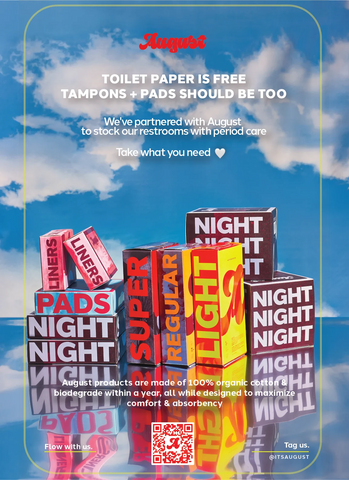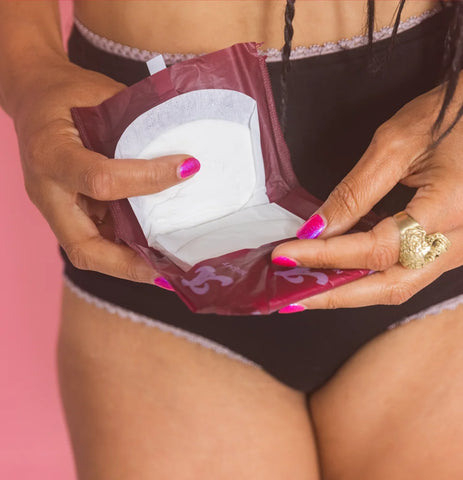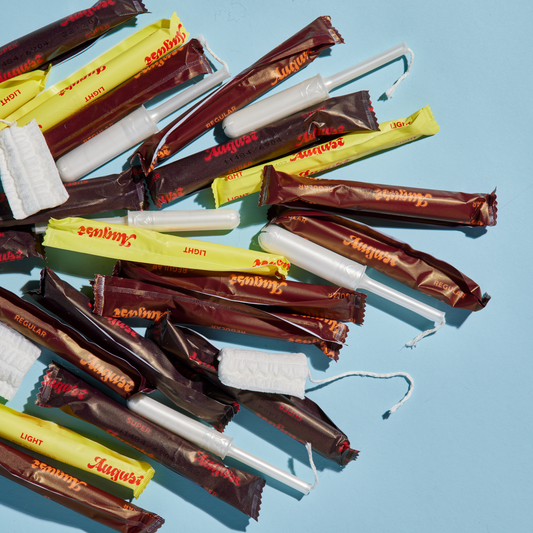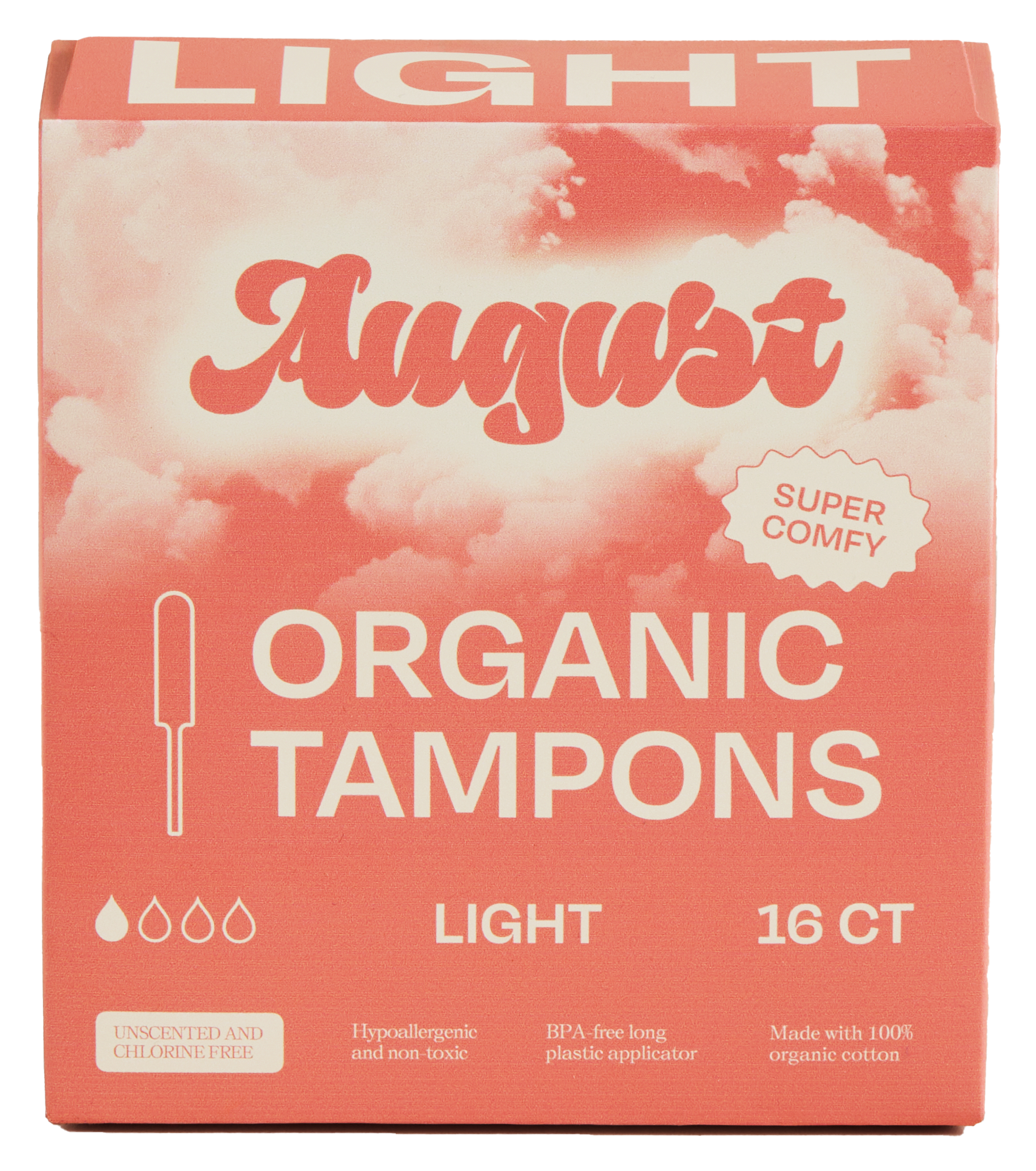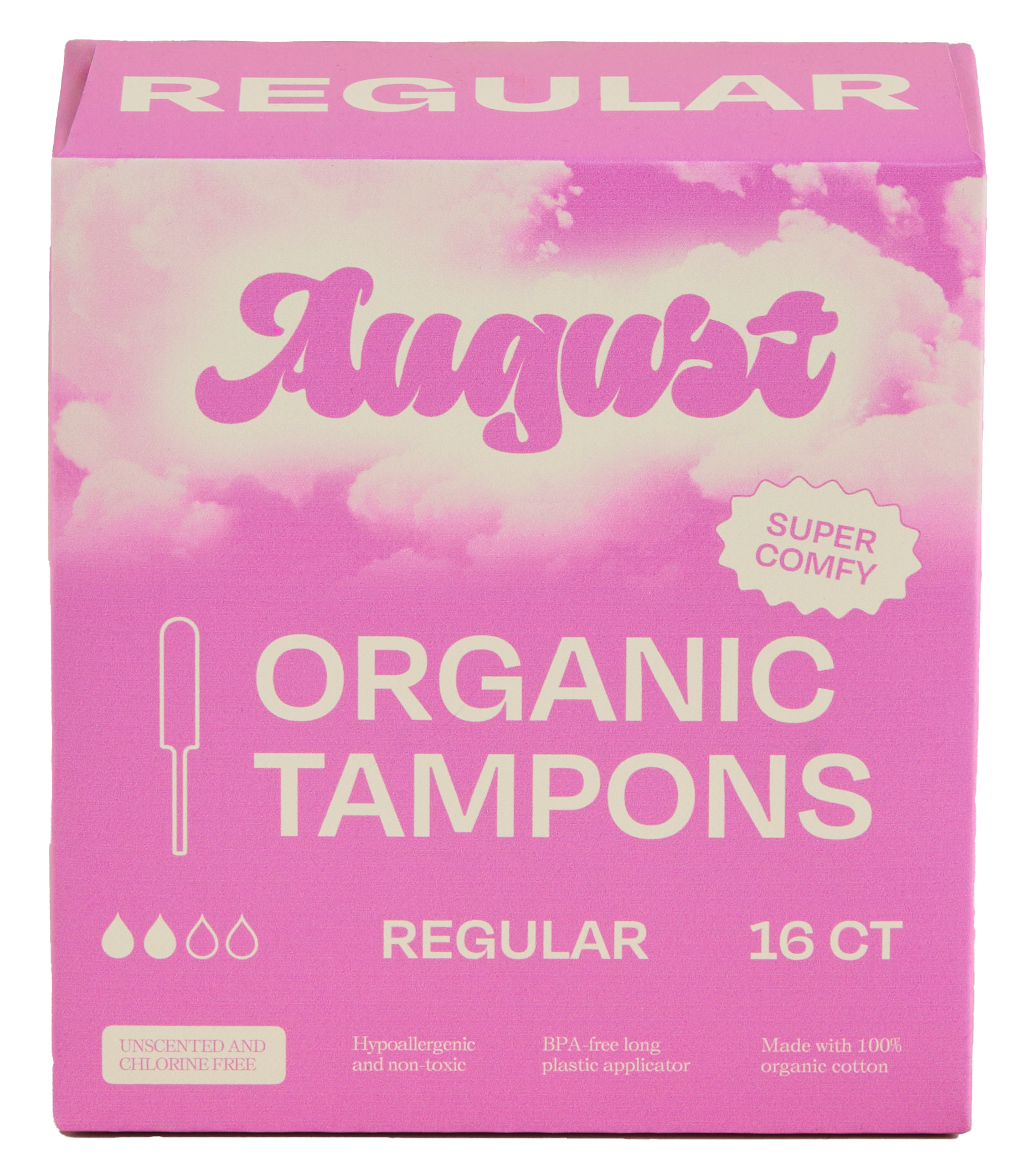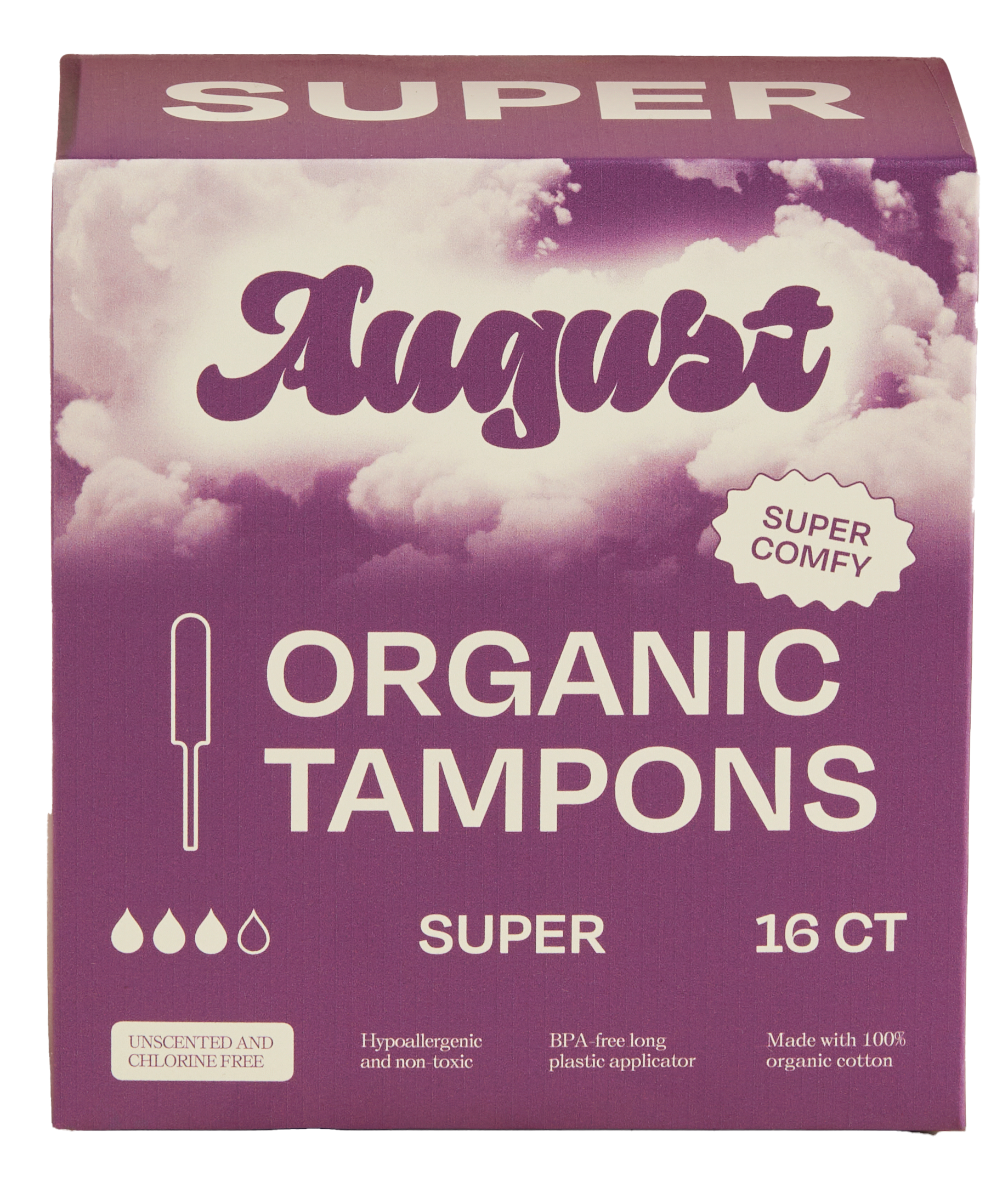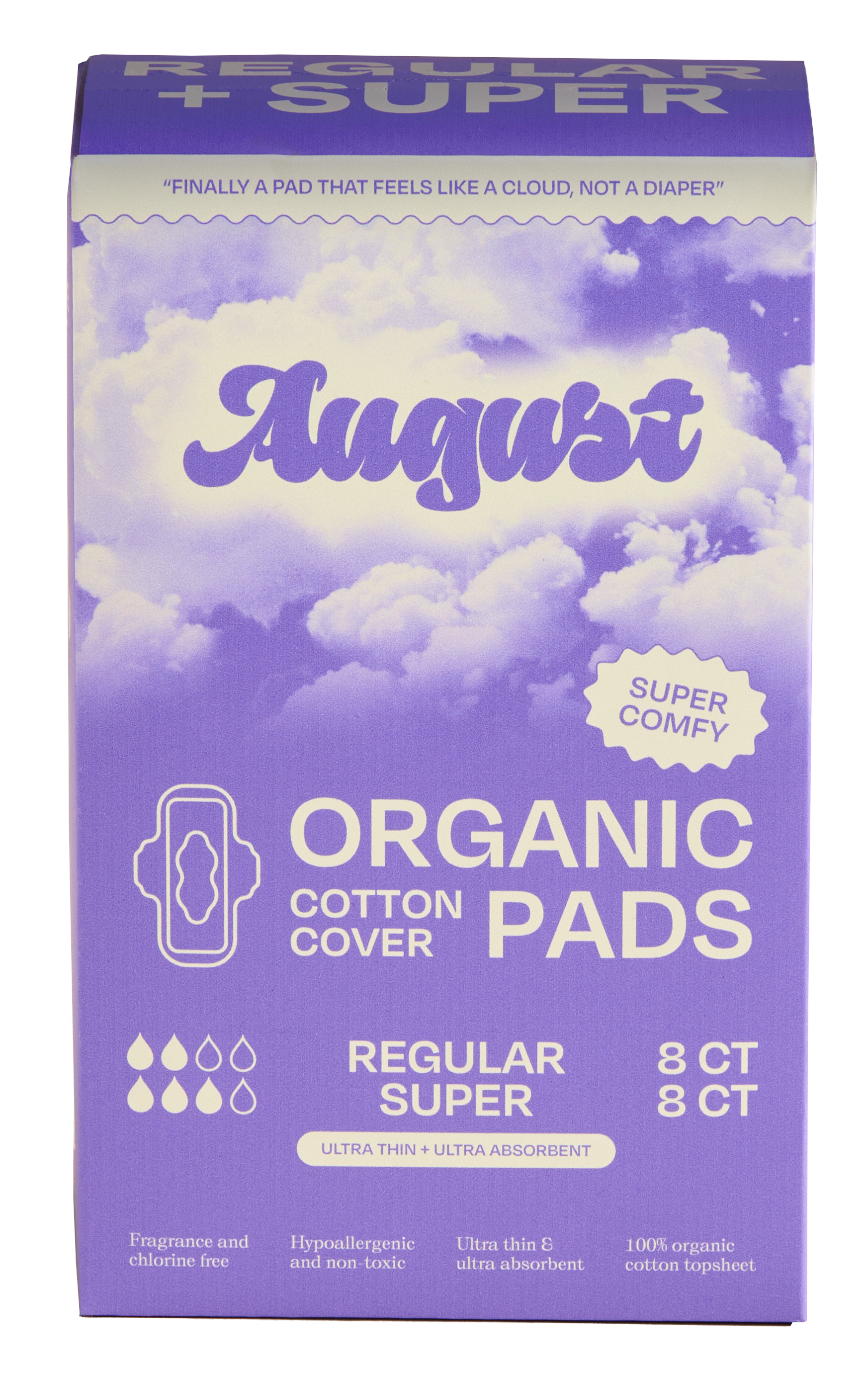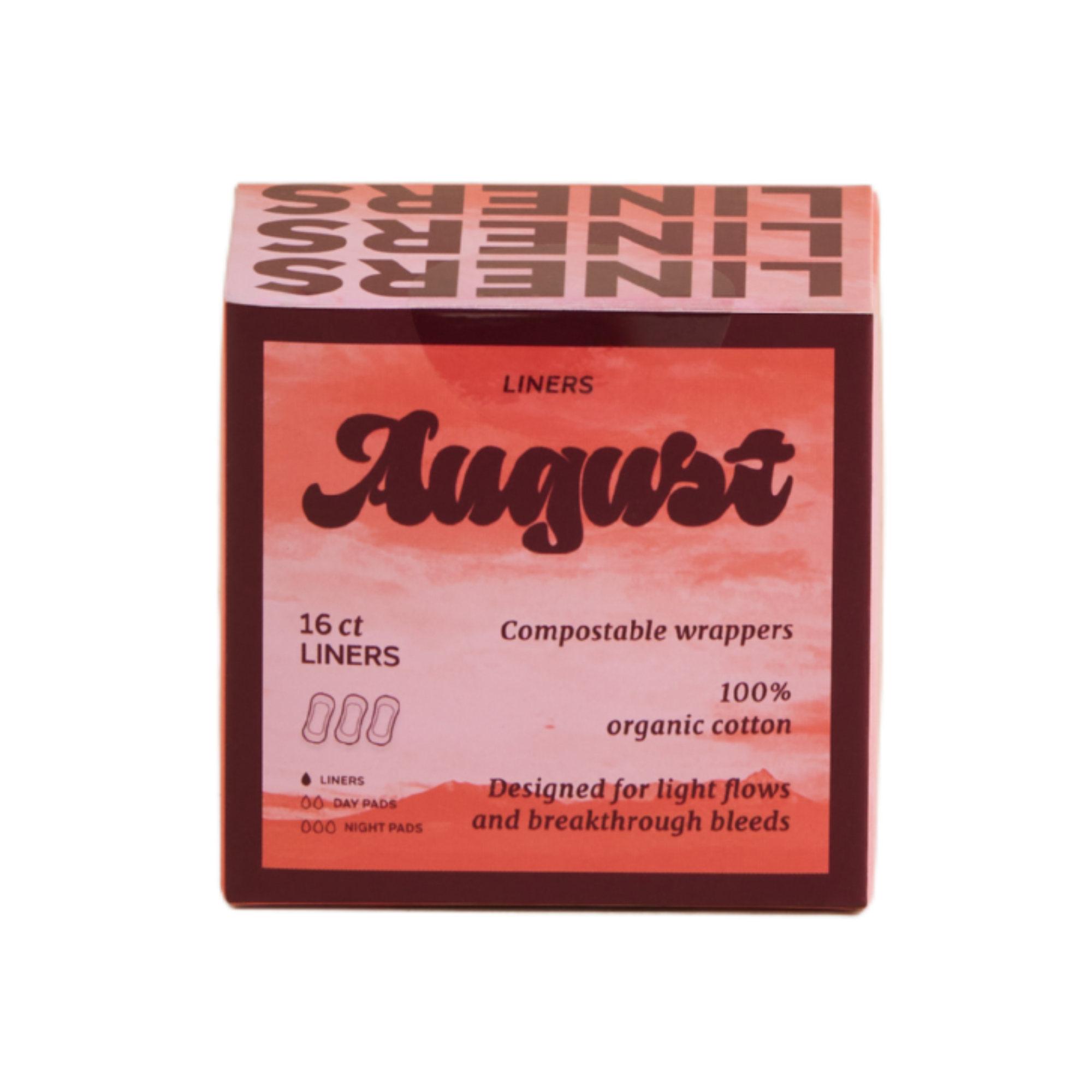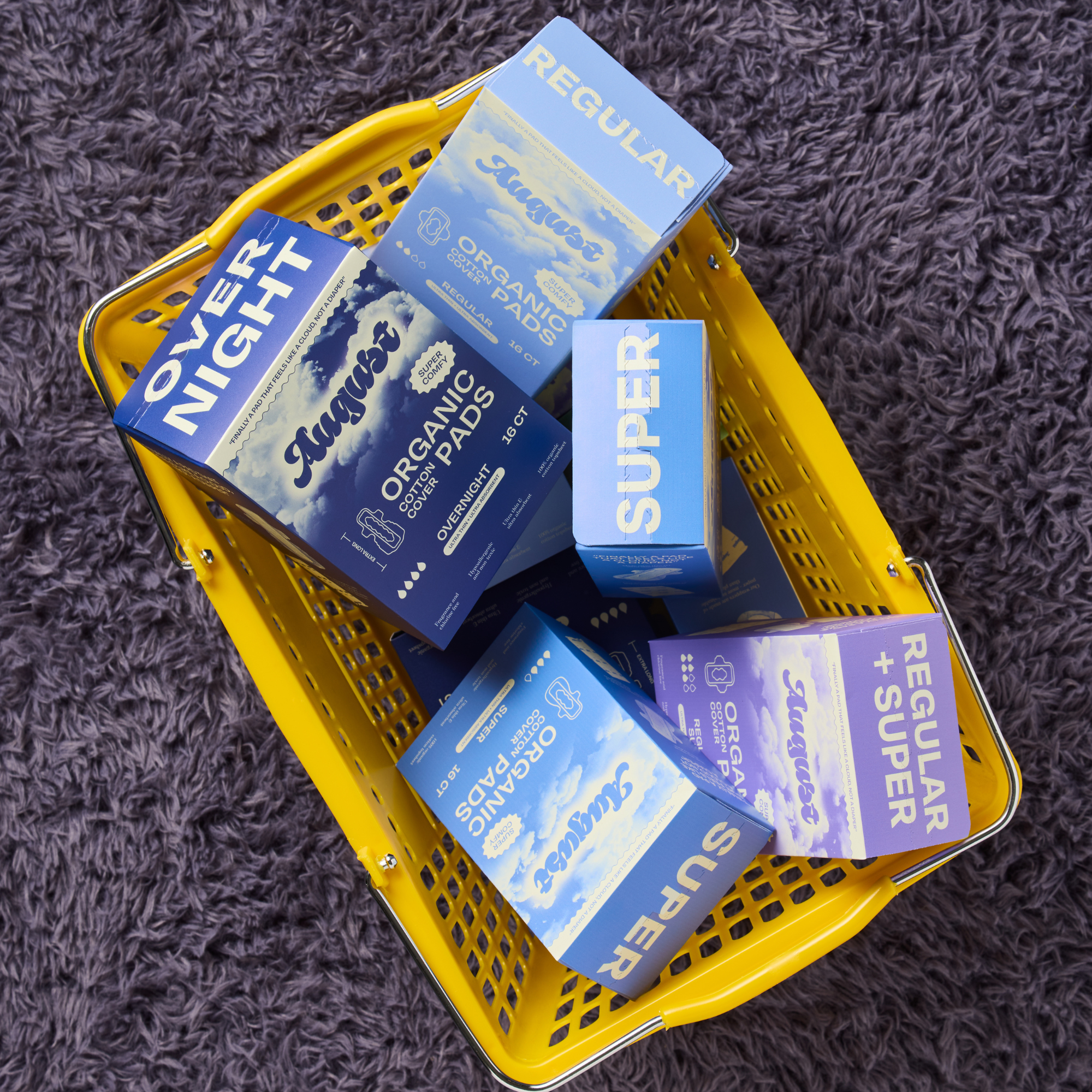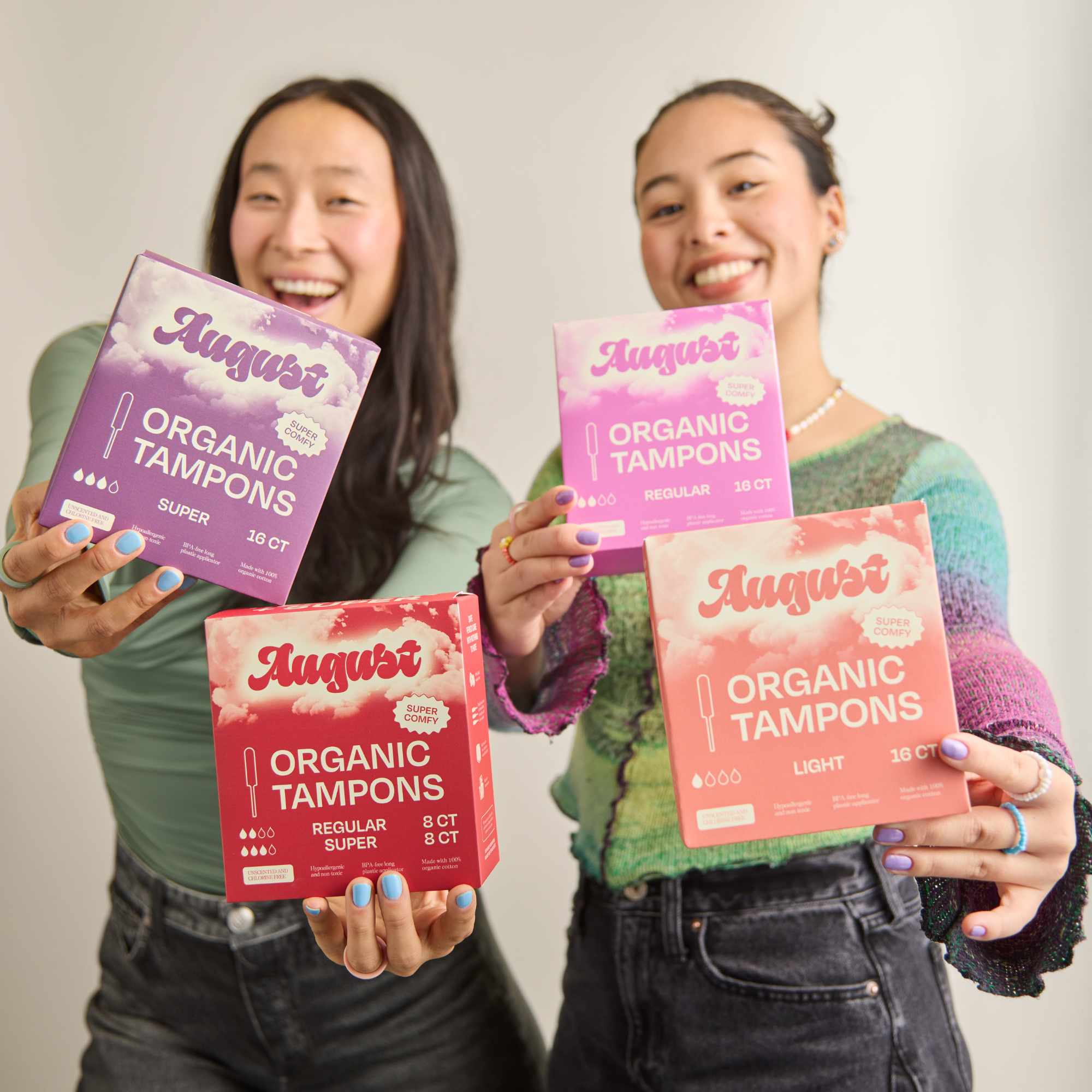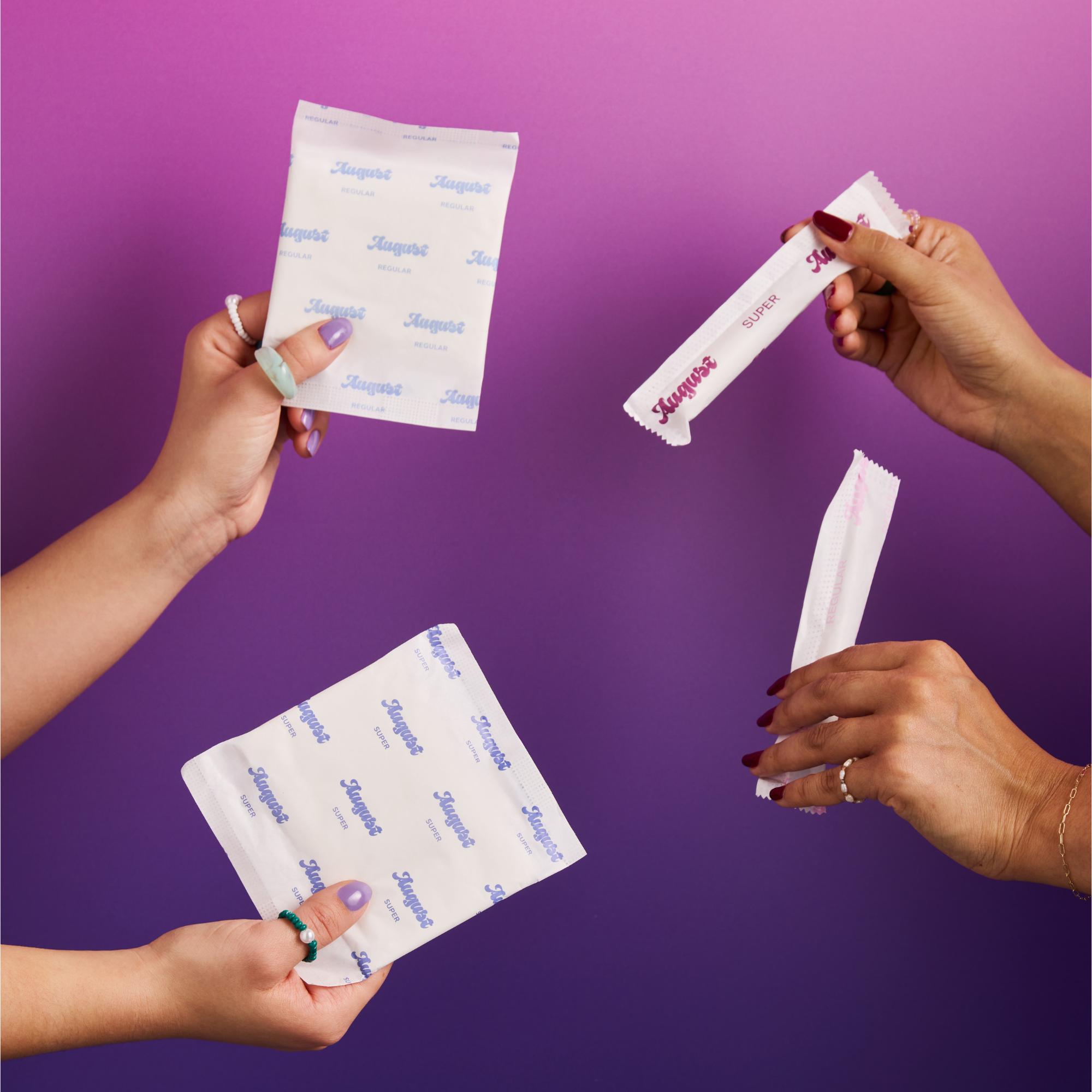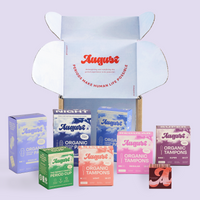September is National Organic Month!
This annual celebration is a month-long awareness campaign. It aims to promote the consumption of organic foods and inform the public on the environmental benefits of organic farming.
But, of course, August period care is going to put our own spin on the month. We're taking this opportunity to explain why we prioritize ethically-sourced, vetted, organic cotton for our period products.
Ethically-sourced & vetted cotton.

There is a human cost to conventional cotton.
We strategically considered this when creating our production journey. Especially after learning that forced labor, child labor and other harmful farming methods have been reported in the top nine cotton producing countries. Altogether, these countries produce 65% of the world's cotton.
By buying vetted, organic cotton period products like ours, you can ensure that the people who create your products are paid a living wage and fairly compensated for their hard work.
August period care’s cotton journey.

Our cotton is sourced sourced from suppliers in Turkey from farms in Turkey, Kyrgyzstan and Tajikistan that grow pesticide-free, free of harmful chemicals, fragrance-free, hypoallergenic, and ethically sourced cotton.
After being harvested and processed, our cotton hops on a ship to Germany (to be turned into tampons), and to China (to be turned into pads)!
100% Organic Cotton – always.

Let’s go over why organic cotton is better for the environment.
In stark contrast to non-organic cotton
- produces fewer greenhouse gas emissions
- and is farmed without harmful pesticides supporting healthy soil and nearby waterways.
As an added bonus, the decision not to use pesticides is healthier for the cotton farmers who grow the cotton.
Does using organic cotton change the quality of menstrual pads and tampons?

Don't worry, in pursuit of environmental and ethical benefits, the switch to organic doesn’t sacrifice quality.
Unlike non-organic cotton, organic cotton has longer fibers that are undamaged by the use of pesticides and chemical processing.
This makes organic cotton soft, breathable, harmful chemical-free, and better for YOU.
Environmental benefit of organic cotton.

Read more about August's sustainable period care materials on our Traceability page or check out the interactive diagrams on the product pages.
Did you know that tampons are regulated by the Food & Drug Administration (FDA) and registered as a class II medical device?

This means that the FDA is the regulatory body that determines what ingredients are allowed to be included in tampon production.
The FDA still allows for certain ingredients, such as dioxins and pesticides, which contribute to the coloring and production of tampons.
Now, you’re probably wondering – can the standard tampon ingredients really harm your body?

You’re right to be skeptical – only at higher levels can those ingredients cause harm.
However, isn’t it nice knowing that you are consciously thinking about what is going into your body as well as considering your environmental impact?
The important takeaway here is NOT to shame anyone for their period product choice.
Instead, we want to encourage everyone purchasing period products to feel EMPOWERED and KNOWLEDGEABLE about the materials, production, and environmental impact of their tampons, pads, and liners.
Get to know your flow AND your period product alternatives.
…And maybe consider giving August period care a chance ;)
PSA!!
It's true that there are MANY benefits to organic cotton period products. However, specifically with tampons, it’s important to reme mber that the risk of TSS (aka Toxic Shock Syndrome) still exists regardless of the cotton type.
- So, don’t forget to change your tampon every 4-8 hours based on absorbency and depending on your flow!



